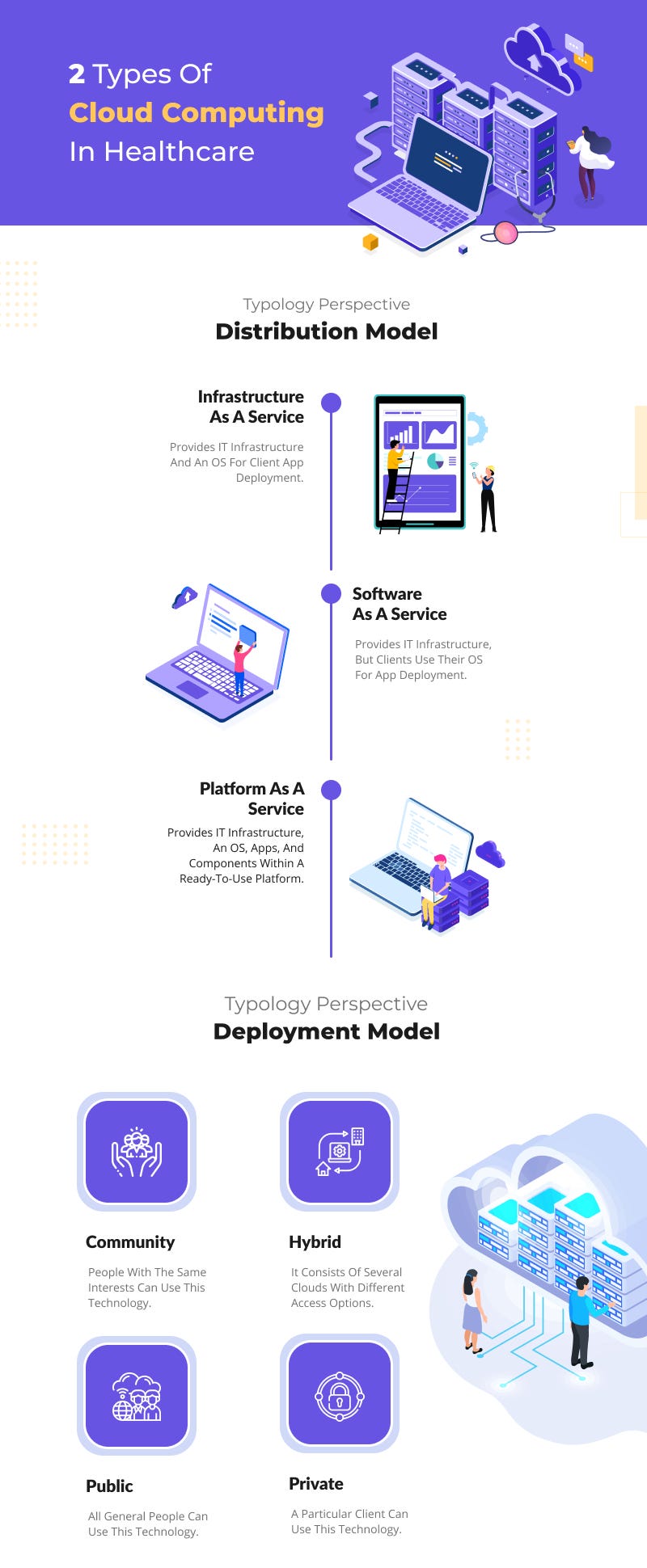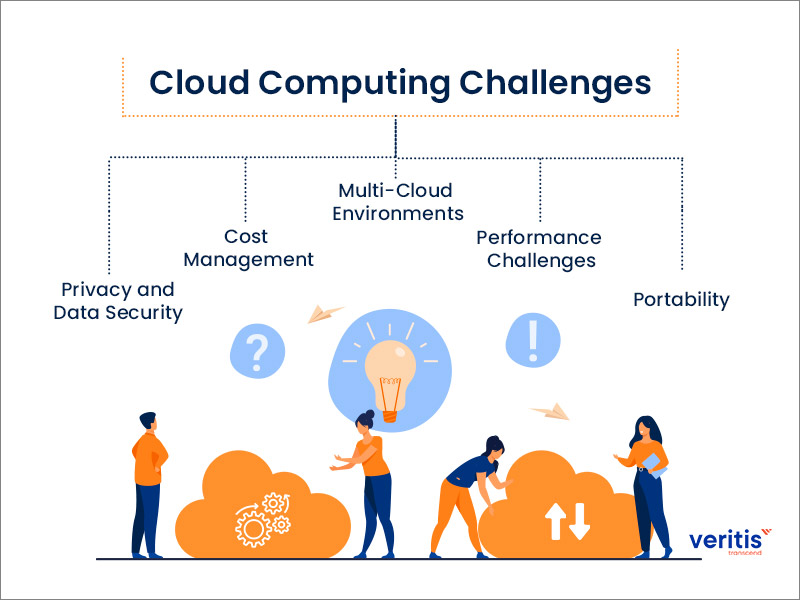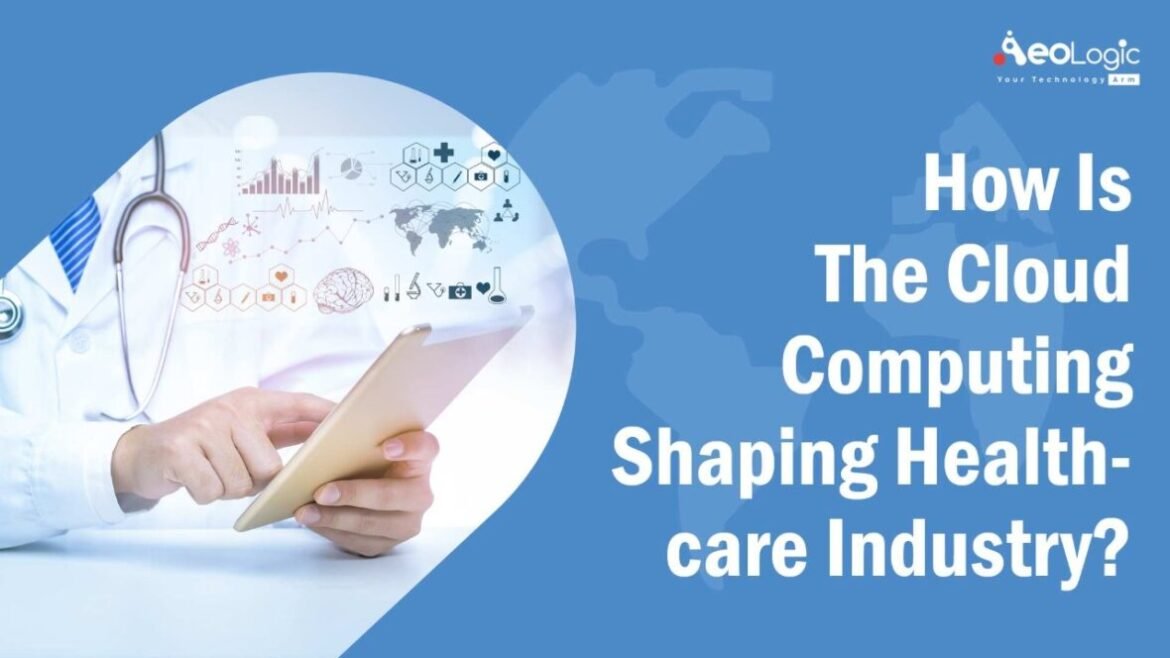
Introduction
Overview of Cloud Computing in Healthcare
Cloud computing has taken the healthcare industry by storm, dramatically reshaping how medical professionals deliver care. This technology provides a scalable and efficient solution for managing vast amounts of patient data, enabling seamless collaboration among medical teams. Imagine a doctor accessing a patient’s comprehensive medical history from their smartphone while on the go, or specialists from different locations discussing a case in real-time without the cumbersome exchange of paper files. Cloud solutions make all of this possible.
Some key features of cloud computing in healthcare include:
- Data Storage: Storing large datasets securely and accessibly.
- Interoperability: Facilitating communication between different health information systems.
- Cost-Effectiveness: Reducing the need for expensive on-premises infrastructure.
Importance of Technology in Modern Healthcare Systems
The integration of technology into healthcare systems is not just an optional enhancement; it has become a necessity. The COVID-19 pandemic highlighted this reality, creating an urgent need for tools that enable remote patient monitoring and telemedicine.
Consider the positive impact of implementing electronic health records (EHRs):
- Efficiency: Reduces paperwork and streamlines processes.
- Accuracy: Minimizes the chance of errors in patient data.
- Accessibility: Ensures that healthcare providers have immediate access to critical patient information.
At TECHFACK, we recognize that the demand for advanced technological solutions will only continue to grow, ultimately improving patient outcomes and transforming healthcare delivery into a more connected and personalized experience. With innovations such as cloud computing leading the charge, the future of healthcare looks promising and brimming with opportunity.

Benefits of Cloud Computing in Healthcare
Enhanced Data Security and Privacy
One of the most significant benefits of cloud computing in healthcare is the enhanced data security and privacy it offers. With cybersecurity threats on the rise, protecting sensitive patient information has never been more critical. Cloud service providers invest heavily in advanced security measures, including encryption, robust firewalls, and multi-factor authentication. For instance, hospitals employing cloud solutions can safeguard patient data much more effectively than traditional methods.
- Encryption: Ensures that data is unreadable without proper credentials.
- Redundant Backups: Cloud systems often include automatic backups, significantly reducing the risk of data loss.
- Access Controls: Only authorized personnel can access sensitive information, ensuring patient privacy.
Improved Access to Patient Information
Another substantial advantage of cloud computing is the improved access to patient information for healthcare professionals. Imagine a situation where a doctor needs instant access to a patient’s test results during a consultation. With cloud-based systems, that information is just a few clicks away, no matter where the doctor is located.
- Real-Time Updates: Medical history and treatment plans can be updated instantly.
- Easy Collaboration: Specialists can collaborate on patient cases, sharing information that can lead to faster diagnoses and treatment plans.
- Patient Portals: Patients can access their health records, lab results, and appointment schedules, empowering them to take charge of their healthcare.
Facilitation of Telemedicine Services
Finally, cloud computing has greatly facilitated telemedicine services, especially during the pandemic when in-person visits were limited. Patients can consult with healthcare providers via video calls, allowing for convenient and timely care.
- Accessibility: Patients in rural areas can receive specialist advice without long travel times.
- Cost-Effective: Reduces overhead costs associated with physical appointments.
- Flexible Scheduling: Patients can book appointments outside traditional office hours, enhancing their healthcare experience.
The integration of cloud computing into the healthcare system not only streamlines operations but also enriches patient care. As we continue to explore these benefits, it’s clear that the future of healthcare is indeed bright with cloud technology.

Challenges and Concerns in Implementing Cloud Technology
Data Interoperability and Integration Issues
While the benefits of cloud computing in healthcare are substantial, there are notable challenges that must be addressed, starting with data interoperability and integration issues. Many healthcare providers use different electronic health record (EHR) systems that often do not communicate seamlessly. Imagine a situation where a patient switches doctors, but the new provider can’t easily access vital medical history due to incompatible systems. This misalignment can lead to critical delays in treatment.
- Siloed Data: Information stored in separate systems complicates comprehensive patient care.
- Integration Costs: The financial burden of integrating disparate systems can be significant.
- Standardization Challenges: Lack of common data standards leads to confusion and potential errors.
Compliance with Regulatory Standards (HIPAA, GDPR)
Another critical concern revolves around compliance with regulatory standards such as HIPAA in the U.S. and GDPR in Europe. Healthcare organizations face stringent requirements to protect sensitive patient data, and adhering to these regulations when using cloud services can be complex.
- Data Breach Penalties: Non-compliance can result in hefty fines and damage to reputation.
- Vendor Responsibility: Healthcare providers must ensure that their cloud service vendors also follow compliance protocols.
- Policy Updates: Keeping up-to-date with frequently changing regulations can be a daunting task.
Reliability and Downtime Risks
Lastly, reliability and downtime risks present significant challenges in cloud technology implementation. The expectation of seamless access to patient data is a double-edged sword; when systems go down, it can severely impact patient care.
- Emergency Preparedness: Healthcare institutions must have contingency plans in place.
- Backup Systems: Relying solely on the cloud can pose risks if adequate backup solutions are not implemented.
- Trust in Technology: Patients and providers alike depend on continuous access, and any disruption can erode that trust.
As healthcare continues to embrace cloud technology, it is vital to navigate these challenges thoughtfully. Addressing these concerns transparently not only enhances the trust of healthcare providers and patients but also strengthens the overall integrity of the healthcare system. The journey toward fully implementing cloud solutions in the healthcare sector is undoubtedly a multifaceted one, requiring attention to detail and ongoing adaptation.

Innovations in Healthcare Enabled by Cloud Computing
AI and Machine Learning Applications
Building on the benefits and challenges of cloud computing, remarkable innovations are revolutionizing healthcare. A prime example is the application of artificial intelligence (AI) and machine learning, which leverage vast amounts of healthcare data stored in the cloud to derive actionable insights. Imagine a scenario where an AI algorithm analyzes patient data to predict future health risks, allowing providers to intervene early and prevent complications.
- Predictive Analytics: AI can identify patterns in patient data to forecast health events, potentially saving lives.
- Enhanced Diagnostics: Machine learning models improve the accuracy of diagnostic tools, particularly in imaging and pathology.
- Operational Efficiencies: AI tools optimize scheduling and resource allocation in healthcare settings, streamlining operations.
Remote Monitoring and IoT Devices
Cloud computing also plays a pivotal role in the rise of remote monitoring and Internet of Things (IoT) devices. Patients can now wear gadgets that continuously track vital signs, sending real-time data to healthcare providers through the cloud. Such technology not only empowers patients but also enhances care efficiency.
- Real-Time Alerts: Healthcare providers receive immediate notifications if a patient’s condition changes, allowing for prompt action.
- Chronic Disease Management: Patients with chronic conditions can be monitored remotely, reducing hospital visits and improving quality of life.
- Data Sharing: Instant access to data enables seamless collaboration between patients and medical professionals.
Personalized Medicine and Treatment Plans
Finally, cloud computing is paving the way for personalized medicine and treatment plans tailored to individual patient needs. By analyzing genetic information and lifestyle data stored in the cloud, healthcare providers can craft targeted therapies that maximize effectiveness while minimizing side effects.
- Genomic Data Analysis: Sequencing a patient’s genome allows for tailored treatment strategies specifically curated for their genetic makeup.
- Patient-Centric Care: Data-driven insights empower patients to make informed decisions about their health management.
- Customized Drug Therapy: Pharmacogenomics can help identify the most suitable medications for individuals based on their genetic profiles.
As these innovations illustrate, the intersection of cloud computing and healthcare is not merely a technological upgrade; it represents a transformative shift toward more proactive, personalized, and efficient patient care. As we continue to embrace these advancements, the future of healthcare is not only exciting but also filled with promise for improved patient outcomes.

Future Trends and Developments in Cloud Healthcare Technology
Adoption of Blockchain for Secure Health Data Management
Continuing from the realm of innovations, future trends in cloud healthcare technology offer exciting possibilities. One such development is the adoption of blockchain technology for secure health data management. This decentralized approach allows for more secure storage and transfer of sensitive patient information, reducing the risk of data breaches.
- Transparency: Blockchain provides an immutable record of all transactions, ensuring that health data remains secure yet accessible to authorized users.
- Patient Control: Patients can retain ownership of their health data, granting access only to those they trust.
- Streamlined Processes: Healthcare providers can quickly verify patient identities and backgrounds without extensive paperwork.
Expansion of Virtual Health Platforms
Another key trend is the expansion of virtual health platforms. The pandemic has accelerated the acceptance of telemedicine, and its continued evolution is transforming how healthcare is delivered.
- Increased Accessibility: Patients can connect with healthcare providers from the comfort of their homes, reducing travel time and costs.
- Diverse Offerings: Platforms now offer not just virtual consultations, but also mental health services, nutrition advice, and wellness check-ups.
- Integrated Services: A one-stop solution where patients can manage appointments, prescriptions, and follow-ups can become the norm.
Integration of Wearable Technology for Health Monitoring
Lastly, the integration of wearable technology for health monitoring is set to become a significant player in cloud healthcare technology. Devices like smartwatches and fitness trackers are evolving into powerful health management tools.
- Continuous Monitoring: Wearables can track heart rates, sleep patterns, and physical activity, offering valuable data that can be shared with healthcare providers.
- Early Detection: By providing real-time feedback, these devices can alert patients and providers to potential health issues before they become critical.
- Personal Health Insights: Users can gain insights into their health trends over time, enabling proactive lifestyle changes.
As we look ahead, it’s clear that cloud technology will continue to shape the future of healthcare by enhancing connectivity, security, and personalized care. By embracing these trends, the healthcare industry can deliver not only effective but also equitable solutions to patients around the globe. The stage is set for a health revolution, and the best is yet to come!

Ethical Considerations in Cloud-Based Healthcare Systems
Patient Consent and Data Ownership
As cloud computing continues to revolutionize healthcare, it also brings forth important ethical considerations that must be addressed. One of these is patient consent and data ownership. Patients often might not fully understand how their health data is collected, stored, and used in cloud systems. It’s crucial for healthcare providers to facilitate transparent communication around data usage.
- Informed Consent: Patients should be made aware of how their data will be managed, especially in terms of sharing with third parties for research or analysis.
- Ownership Rights: Patients need clarity on their rights concerning their health data, including who has access and for what purposes.
- Revocation Options: Clear pathways for patients to withdraw consent and request data deletion must be established.
Bias and Fairness in AI Algorithms
Another pressing ethical issue revolves around bias and fairness in AI algorithms. While cloud-powered AI can enhance healthcare applications, the algorithms’ training data may inadvertently reflect biases that lead to unequal treatment across diverse patient populations.
- Data Diversity: To improve outcomes, AI systems must be trained on diverse datasets that accurately represent the demographics of the population they serve.
- Regular Audits: Continuous monitoring and auditing of AI systems can help identify and rectify biases as they emerge.
- Accountability: Developers of AI tools must be accountable for the outcomes of their algorithms and their impact on patient care.
Ensuring Equity in Healthcare Access
Finally, ensuring equity in healthcare access is paramount as cloud technology becomes mainstream. While cloud solutions can improve access to healthcare services, disparities might emerge based on geographical, socio-economic, or technological divides.
- Rural Accessibility: Healthcare providers need to invest in infrastructure and support for rural areas to bridge the digital gap.
- Cost Barriers: Affordable solutions must be prioritized to ensure that all patients, regardless of financial status, can benefit from cloud-enabled services.
- Education and Training: Offering training programs can empower patients and providers alike to utilize cloud services effectively.
Navigating these ethical considerations is vital for fostering trust in cloud-based healthcare systems. By addressing patient consent, AI fairness, and equitable access, the healthcare sector can leverage cloud technology responsibly and effectively, ultimately improving patient care for everyone. The journey is a collaborative effort, ensuring that technology enhances health equity rather than exacerbates existing inequalities.

Case Studies and Success Stories
Implementation of Cloud Solutions in Hospitals
Transitioning from ethical considerations, let’s explore some tangible case studies that highlight successful implementations of cloud solutions within hospitals. A notable example is the use of cloud-based electronic health record (EHR) systems by hospitals across the United States. One such case is a regional medical center that adopted a cloud-based EHR to streamline their patient management processes.
- Seamless Data Access: Healthcare providers can quickly access patient records from any location, improving patient treatment coordination.
- Cost Reduction: By moving to the cloud, the hospital reduced IT maintenance costs by over 30%, allowing for better allocation of funds towards patient care.
- Scalability: The flexibility of cloud solutions allows the hospital to easily scale their services, accommodating an increasing patient load.
Positive Impact on Patient Care and Outcomes
The success stories stemming from these implementations reflect significantly positive impacts on patient care and outcomes. In our highlighted hospital, patient satisfaction scores soared post-implementation of their cloud system.
- Faster Response Times: Clinicians reported a 25% decrease in wait times for accessing patient information, allowing for quicker decision-making during critical scenarios.
- Enhanced Communication: Collaborative tools available in cloud services enabled instant communication between multidisciplinary teams, resulting in improved treatment plans.
- Data Insights: Advanced analytics derived from cloud-based platforms helped healthcare teams spot trends in patient care, leading to improved preventive measures and reduced hospital readmission rates.
These real-world examples showcase the potential of cloud technology to transform healthcare delivery fundamentally. As hospitals embrace cloud solutions, they cultivate an environment that not only enhances operational efficiency but also prioritizes patient wellbeing. The journey toward modern healthcare is evolving, and the stories of success serve as a beacon of inspiration for others in the community.

Conclusion
Summary of Key Points
As we wrap up this exploration of cloud computing in healthcare, it’s essential to reflect on the key points that have highlighted its transformative potential. From enhancing data security to facilitating advancements in telemedicine, cloud technology has become a cornerstone of modern healthcare systems.
- Enhanced Data Security: The robust security measures of cloud systems help protect sensitive patient data.
- Improved Access: Cloud solutions make patient information accessible at any time, from anywhere, promoting better care coordination.
- Innovative Technology Use: Applications like AI, IoT devices, and personalized medicine are reshaping patient experiences.
- Ethical Considerations: Navigating issues like data ownership and algorithms ensures a fair approach to technology use.
These insights demonstrate that while challenges exist, the advantages of cloud computing heavily outweigh the drawbacks, fostering an environment for improved patient outcomes.
Looking Ahead: The Evolution of Healthcare Technology
Looking ahead, the evolution of healthcare technology promises an even more integrated and patient-centric approach. As we continue to innovate, we can expect:
- Greater Adoption of Blockchain: This will enhance security and transparency in patient data management.
- Expansion of Virtual Health Services: Making healthcare more accessible to underserved populations.
- Wider Use of Wearable Technologies: Enabling real-time health monitoring and continuous care.
As hospitals, healthcare providers, and tech companies collaborate, the future of healthcare is bright and filled with potential. At TECHFACK, we believe that embracing these advancements will not only optimize operational efficiencies but also redefine how care is delivered, making it more personalized and equitable. The journey is ongoing, and with focused efforts, the best is yet to come in healthcare innovation!

